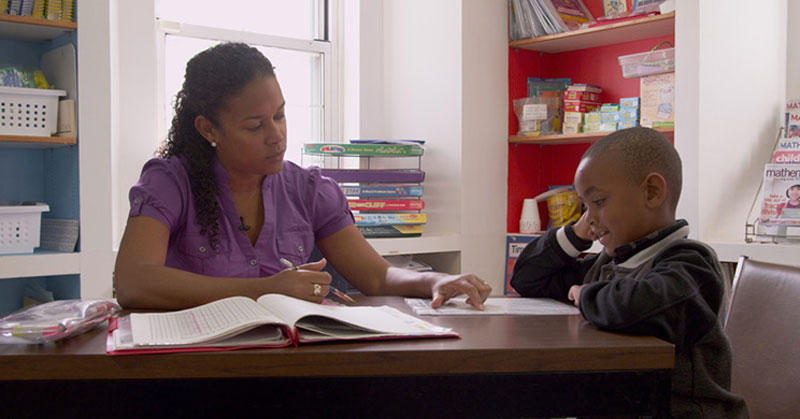Reading Clinic Reports “Significant Progress”
With the end of the school year upon us, The Reading Clinic reports another year of significant progress among students in its Core Reading Programme.
During 2014-15, a total of 79 children received services through the Programme, which is designed for students with specific reading disabilities.
Through the Programme, most children receive three one-on-one lessons each week with an Orton-Gillingham trained tutor. The Orton-Gillingham approach is a structured, multi-sensory, phonetic approach to teaching decoding and spelling that research has proven to be effective for students with dyslexia.
For children who received tutoring for five months or more, preliminary end-of-year testing results are promising. On average children achieved more than one grade level of progress in one year in both oral reading skills and reading comprehension.
One student said, “I would have never made it [in middle school] because I was the worst at language.” Another noted, “At first, I didn’t like reading. Now I do. It’s made a big difference.”
As one grateful parent commented, “The tutoring provided by The Reading Clinic has been, in a word, AMAZING! My daughter has come such a long way with her reading. Not only did her reading improve but also her self-confidence has soared due to the hard work she put in, combined with the excellent tutor provided by The Reading Clinic.”
The Core Reading Programme is most effective with children who have a pattern of dyslexia – i.e. children who have strengths in some learning-related skills but struggle with reading and spelling due to difficulties working with the sounds in words [phonological processing] and/or rapid naming.
The Reading Clinic said, “Children with dyslexia typically have difficulty sounding out new words and tend to memorise words based on how they ‘look’, but are not always accurate in remembering words.
“They also have great difficulty with spelling and often hate to write stories even though they often have wonderful ideas. Children with dyslexia also have strengths that may include, strong visual skills, the ability to ‘think outside of the box’, creativity and musical, athletic, technological or artistic talents.
“The Reading Clinic would like to thank HSBC for its support as lead donor of the Core Reading Programme. Last year, in recognition of HSBC’s 10th anniversary in Bermuda, the Bank committed to donate half a million dollars in support of educating young Bermudians.
“The Reading Clinic was named as one of HSBC’s 10th Anniversary donation recipients, with HSBC committing to provide scholarships for 5 years for students in their Core Reading Programme.”
Yolanda Outerbridge, Head of Human Resources and HSBC spokesperson for the partnership with The Reading Clinic said, “Reading is a critical skill that forms the foundation for learning.
“Effective reading at an early age provides the platform to build other skills. The ripple effect of ineffective reading is greater than the reading deficiency itself. Consequences can include poor self-esteem, difficulty in social development, and can ultimately impact future employment.
“As technology advances daily and gaining information is largely obtained through the internet, those who have difficulties reading will be left behind by a generation that has become largely communicators through electronic channels. “HSBC is very proud to support The Reading Clinic in the amazing work that they do.
“Our scholarship programme includes supporting services and testing for students through one-on-one sessions. Through this partnership, we are helping children achieve their highest potential and ultimately preparing them for the future.”
The Core Reading Programme is also supported by a range of individuals and companies in Bermuda. In addition to lead donor HSBC, the Core Reading Programme is supported by major sponsors Tokio Millennium Re, Renaissance Re, The Ministry of Education and Aspen.
Read More About
Category: All



Fantastic! Thank you to all of the staff of the Reading Clinic who help our children. Is there merit in providing training to teachers so that ALL schools have this skill in house?